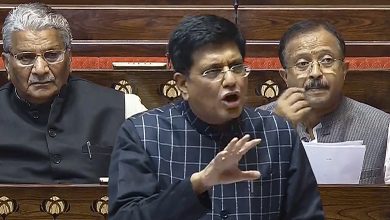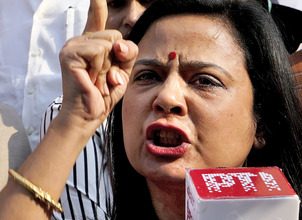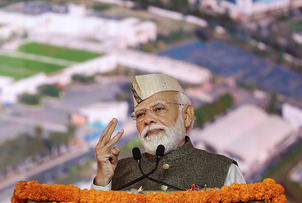‘No room for complacency in Covid fight, absolute case numbers still high’

New Delhi, Jul 28 (PTI): The Union Home Ministry Wednesday said there is no room for complacency in the approach to deal with the COVID-19 pandemic as the absolute number of positive cases is still significantly high. Extending the existing pandemic guidelines till August 31, Union Home Secretary Ajay Bhalla also said there should be continuous focus on the five-fold strategy of ‘test, track, treat, vaccinate and adhere to COVID-appropriate behaviour’ for effective management of COVID-19.
He also said there is a need to ensure adherence to Covid-appropriate behaviour (CAB) in all crowded places in view of the upcoming festivals. In his communication to all states and union territories, Bhalla said that with the decline in the number of active cases, states and UTs are reopening economic and other activities in a gradual manner.
“While the decline in the number of cases is a matter of satisfaction, it may be noted that the absolute case numbers are still significantly high,” he said.
Therefore, the home secretary said, there is no room for complacency and the process of relaxing restrictions should be carefully calibrated, as has been reiterated in his earlier communications.
Bhalla said the reproduction number of the virus, commonly known as the ‘R’ factor, is hovering just below 1 but is high in some of the states.
Referring to his letter dated July 14, the home secretary said all efforts should be made to ensure that there is no increase in the ‘R’ factor.
“Further, strictest possible measures should be taken in the districts that are still showing high positivity rates.
“In view of the upcoming festivals, there is need to ensure COVID Appropriate Behaviour (CAB) in all crowded places,” he said.
Bhalla urged state governments and UT administrations to issue strict directions to the district and all other local authorities to take necessary measures for COVID-19 management.
“The officers concerned should be made personally responsible for any laxity in strict enforcement of COVID appropriate behaviour.
“I would also advise that Orders issued by the respective State governments and UT administrations, district authorities in this regard, should be widely disseminated to the public and to the field functionaries, for their proper implementation,” he said.
India logged 43,654 fresh COVID-19 cases taking its tally to 3,14,84,605, while 640 more fatalities pushed the death toll to 4,22,022, according to Union Health Ministry data on Wednesday.
The number of active cases stood at 3,99,436, an increase of 1,336 in a span of 24 hours, and comprises 1.27 per cent of the total infections. The COVID-19 recovery rate has improved to 97.39 per cent, the data updated at 8 am showed.
As many as 17,36,857 COVID-19 tests were conducted on Tuesday, taking the total number of tests conducted so far to 46,09,00,978.
The daily positivity rate increased to 2.51 per cent from 1.73 per cent on Tuesday. The weekly positivity rate stood at 2.36 per cent, the data showed.
‘Conduct state-specific serosurveys in consultation with ICMR’
New Delhi: The Centre has advised all states and Union territories to conduct seroprevalence surveys in consultation with the ICMR to generate district-level data on seroprevalence which is essential in formulating localised public health response measures. This was stated in a letter written by Union Health Secretary Rajesh Bhushan to additional chief secretaries/principal secretaries/secretaries (Health) of all states/UTs, a statement by the Union health ministry said. The ministry also shared findings of the recent national serosurvey conducted by the Indian Council of Medical Research (ICMR) across 70 districts of the country, according to which the seroprevalence was found to be 79 per cent among the surveyed population in Madhya Pradesh, 58 per cent in Maharashtra, 44.4 per cent in Kerala, 76.2 per cent in Rajasthan, 75.9 per cent in Bihar. It was 75.3 per cent in Gujarat, 71.0 per cent in Uttar Pradesh, 69.8 per cent in Karnataka, 69.2 in Tamil Nadu, 68.1 per cent in Odisha, 66.5 in Punjab, 63.1 in Telangana, 50.3 in Assam and 60.9 in West Bengal.
Referring to the findings of the fourth round of the national seroprevalence survey done by ICMR, the ministry has advised states/UTs to conduct the seroprevalence studies in their own regions in consultation with the ICMR, so that such studies follow a standardised protocol, and the findings can then be utilised by the respective state and UT to guide objective, transparent and evidence-based public health response to COVID-19.
“The national serosurvey by ICMR was designed to capture the extent of the spread of Covid infection at the national level. Therefore, the national serosurvey results do not reflect the heterogeneity of seroprevalence between districts and even between states,” the statement said.








